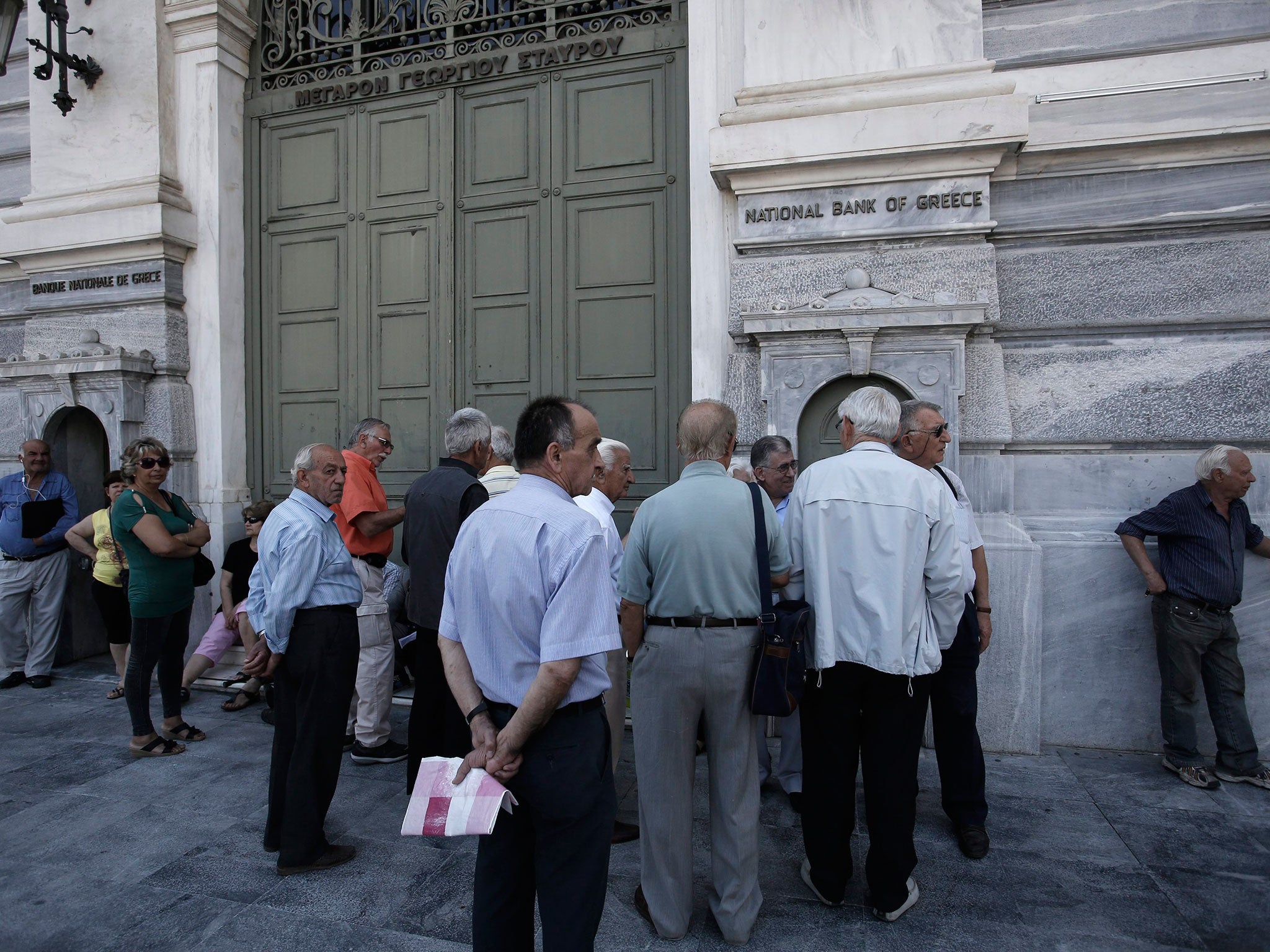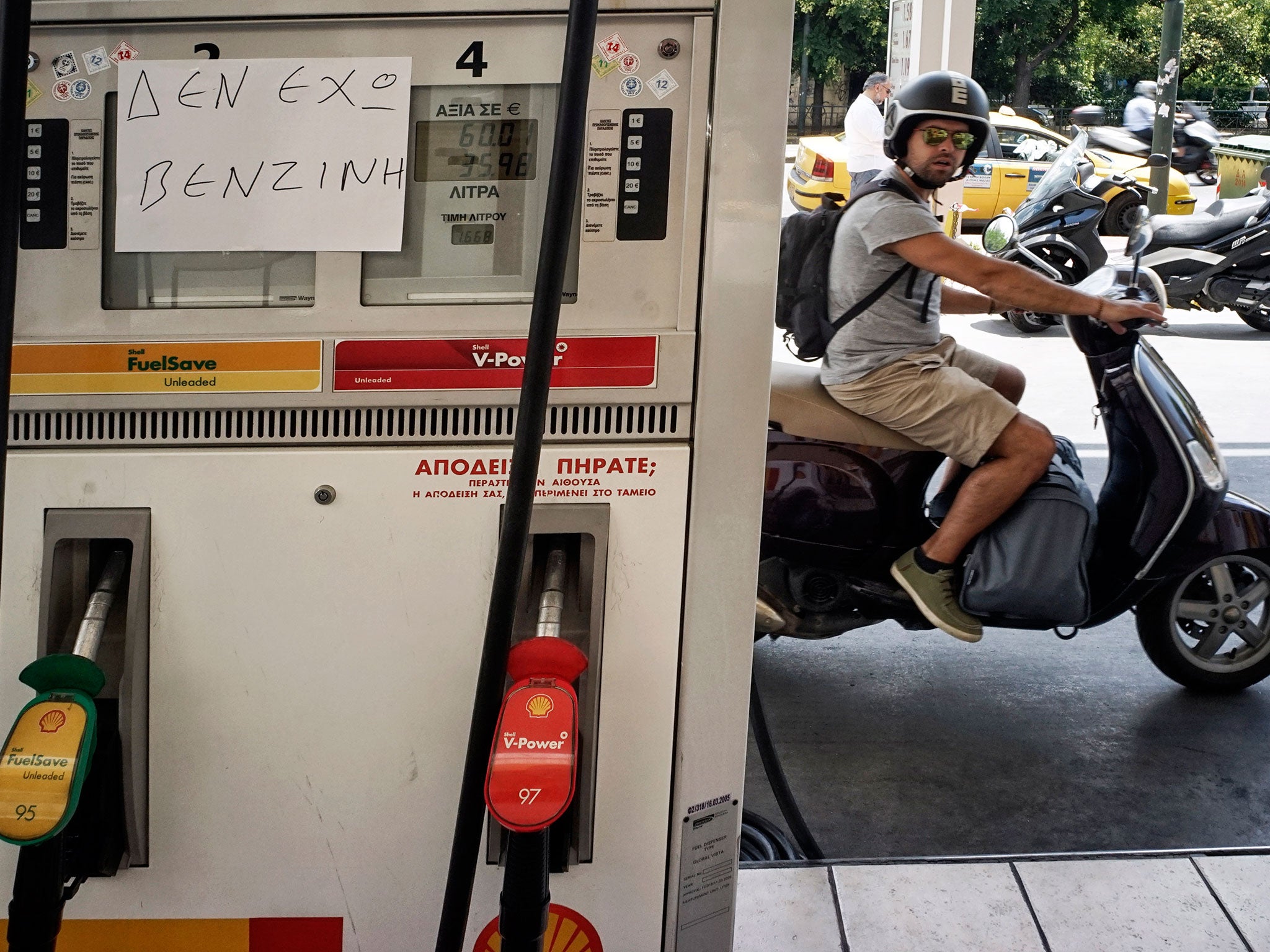Greece debt crisis: Workers in Athens’ historic meat market take stock as creditors sharpen their knives
Despite the government’s best efforts, economic turmoil is finally being felt on the streets

Your support helps us to tell the story
From reproductive rights to climate change to Big Tech, The Independent is on the ground when the story is developing. Whether it's investigating the financials of Elon Musk's pro-Trump PAC or producing our latest documentary, 'The A Word', which shines a light on the American women fighting for reproductive rights, we know how important it is to parse out the facts from the messaging.
At such a critical moment in US history, we need reporters on the ground. Your donation allows us to keep sending journalists to speak to both sides of the story.
The Independent is trusted by Americans across the entire political spectrum. And unlike many other quality news outlets, we choose not to lock Americans out of our reporting and analysis with paywalls. We believe quality journalism should be available to everyone, paid for by those who can afford it.
Your support makes all the difference.Stavros Koukiadakis, a diminutive trader who sells meat in Athens’ Varvakeion Agora markets, ponders the situation Greeks find themselves in today. His father, he says, worked in the meat market since the fall of the Greek junta in 1974. He says the only crisis that can compare to this is Chernobyl – a nuclear cloud threatening all of Europe. “At least back then people had money on them.”
In the market, where meat traders often buy products from European neighbours, fears of capital controls are rampant. “They can’t just stop international transactions, the market will be paralysed,” says Mr Koukiadakis.
A fellow butcher, Andreas Athanasiou, says: “People are terrorized... there’s not a soul here. The referendum is a joke – just a tool to push through the measures.”
Like many Greeks, Mr Athanasiou has decided to abstain from voting. “I want my dignity back, which is something no one can offer me – not the corrupt politicians here, nor the rapacious creditors abroad.”
Sharpening his knives, perhaps like Greece’s international lenders, another butcher further along the market adds: “I know what will happen if [creditor controls] continue too long. It will be chaos.” At a cash machine near the market, queues continued to build outside Alpha Bank. Despite the long lines, Greeks kept their cool.
“Capital controls for a week is a long time, and we still don’t know if they’ll continue after Tuesday,” said Antonis, a bank employee who refused to give his full name because of his profession.

He does not seem too worried by the controls. The 30-year-old says he would abstain from the vote on 5 July. “The terms of the referendum are far too vague for me to know what I’m voting about, plus I‘m not prepared to spend any money to travel for the vote.”
“The Prime Minister is a loser now whatever he does,” said another member of the queue. “The move came too late – look at us queuing like this, it’s a disaster – plus the terms are so vague.”
Some were less sanguine and were not mollified by the offer of free public transport in Greece until 6 July, a day after the referendum.
“I was in the hospital last month, and I needed cash to pay the doctors,” said Georgia, 50, an unemployed secretary who was trying to take out money from an ATM on 29 June and refused to give her last name. “We were hoping that we were on the right path, and then they called this referendum,” she said. She had little cash for the week’s essentials, she added.
“I came here at 4am. because I have to get my pension,” said 74-year-old Anastasios Gevelidis, one of about 100 pensioners waiting outside the main branch of National Bank of Greece in the country’s second largest city of Thessaloniki. “We don’t even have enough money to buy bread,” he said.
He added: “Nobody knows anything. A bank employee came out at 8am and told us ‘you’re not going to get any money,’ but we’re hearing that 70 branches will open.” One of the most onerous financial controls being introduced is a daily withdrawal limit of €60 (£43) from ATMs. “What can I do first with €60?” Mr Gevelidis said. “I owe €150 just to the pharmacy.”
The current crisis is also having an impact on the arts, in particular the planned Athens Festival. British theatre producer Oli Sones tweeted that his cast were due to fly out to Athens today to perform Jesus Christ Superstar at the Herodes Atticus as part of the festival. But the promoter has now decided to cancel the shows. Greece might need a resurrection miracle of its own to get out of this mess.
Join our commenting forum
Join thought-provoking conversations, follow other Independent readers and see their replies
Comments